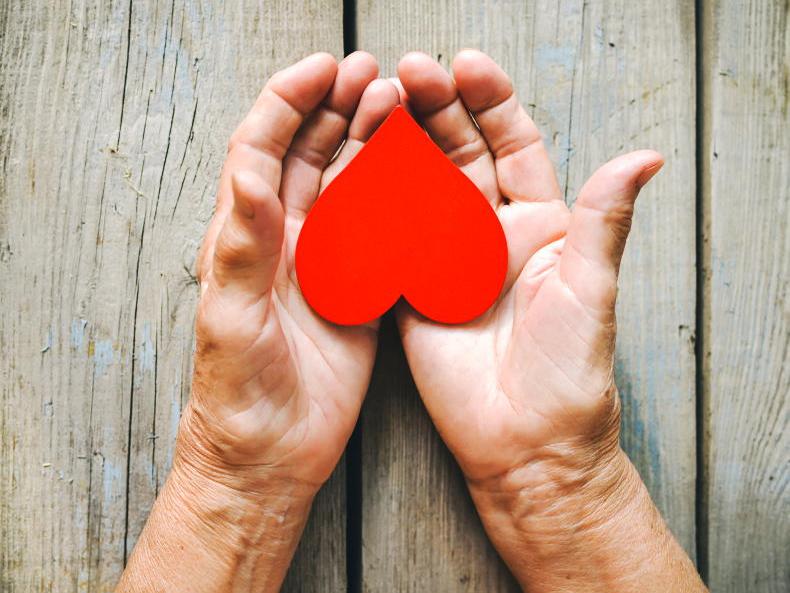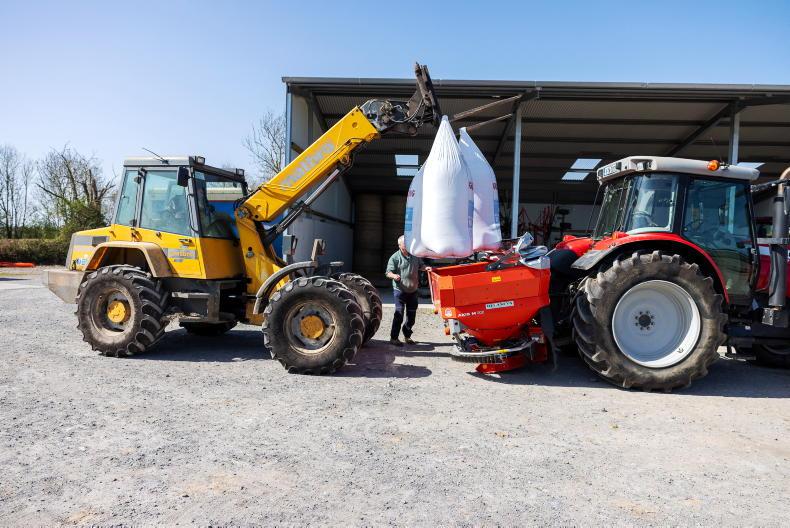One person’s decision to donate organs can mean a “rebirth” for up to five people.
That’s why it is important to have the conversation about organ donation sooner rather than later so your family understands your wishes in the event of unexpected death.
That’s the key message from Dr Catherine Motherway – now a familiar face on TV as she comments regularly on the COVID-19 ICU situation.
Catherine is both an intensive care physician at University Hospital Limerick and HSE clinical lead for organ donation.

Dr Catherine Motherway is a Limerick-based intensive care physician.
“Nationally, 190 organ transplants took place in 2020 from a total of 62 deceased donors and 28 living donors,” she says.
While this figure was down from 274 transplants in 2019 (because of the pandemic) she is grateful to all the families who agreed. She also speaks emphatically about the benefits of organ donation for both the recipients of transplant organs and for grieving donor families.
Life enhancing, saving and changing
“The benefits for recipients are huge, obviously,” she says. “The results of an organ transplant are life-enhancing, life-saving and life-changing for those who get them. If you are on dialysis three times a week and having to boil your potatoes five times before you can eat them (to reduce potassium content), for example, or if you are constantly short of breath with cystic fibrosis, you will be so happy to get a transplant.
“To be given the option of organ donation when a loved one is going to die can also be hugely beneficial for families because it can help the grieving process in the long term. It can make them feel that – in what is often a young, sudden and tragic death – there is something out of it that will help somebody else.”
Like making a will, it should be done
Telling people you would like to donate your organs in the event of untimely death is a bit like making a will, she says.
“Many people don’t want to think about it, but it is important to do these things because death is part of life.”
Here she quotes, as Gaeilge, from the hymn Ag Chríost an Síol, translating the line that refers to death not being an end but a rebirth.
“That is what it is for the recipient of an organ – a rebirth,” she says. “One person’s decision to donate can mean new life for up to five people because it can provide lungs for transplant, kidneys, heart, liver. Obviously, different people will be able to give different organs depending on age, health and so on, but one donation can help many people.”
COVID-19 challenge
COVID-19 has made offering the option of organ donation difficult, of course.
“With widespread viral transmission, you have to make sure that both the deceased and the recipient are not carriers,” Catherine states. “And [also] that it is appropriate for the recipient to be immune-suppressed in the face of [the pandemic]. The renal donation programme did halt during the first lockdown and transplant numbers were reduced overall in 2020, but that said, 62 families were good enough to allow donation last year and we are grateful for that – in what has been a tremendously difficult time in ICUs around the country.”
Breaking bad news over the phone
Discussing the option of organ donation has been more difficult this year, also.
“COVID made it very difficult to communicate bad news to patients,” Catherine explains. “Normally, when telling families a loved one is going to die, you can give a hug or shake a hand, but it is very hard to tell people bad news over a phone or WhatsApp call. At best, it is two metres apart – with both parties wearing full PPE.”
Option always offered
Dr Motherway’s aim is to offer everyone the option of organ donation. “Some [families] don’t want it because they know their loved one wouldn’t want it – and that’s OK – and some families have never thought about it,” she says. “But other families have already discussed it before they are asked. It is always easier when the deceased person has indicated, one way or another, during their lifetime, their wishes in relation to organ donation in the event of a tragedy.”
Key messages
If you agree your organs should be donated, tell someone in your family. You can signal your agreement on your driving licence, on donor cards or by telling your next of kin. The family will always be asked if such a time should come.590 people are waiting for an organ transplant in Ireland at present. According to the HSE, 30 people on average die each year while waiting for a transplant.While some kidney donations can take place through what’s called the “living donation programme”, all other donations can only proceed when another life is lost.Some organs are sent to hospitals abroad if not needed in Ireland.Opt-out organ donation system planned
A Human Tissue Bill is being brought to Cabinet again in 2021 which, if it becomes law, will provide for a “soft” opt-out organ donation system in Ireland.
Instead of having to opt-in by flagging your agreement on your driving licence, filling out a donor card or telling family, this option will assume that the donor will donate his or her organs unless they have actively chosen not to – signing a special opt-out register to that effect during their lifetime.
Families’ assent will also continue to be sought, says Dr Motherway, if or when this new system becomes law.
One person’s decision to donate organs can mean a “rebirth” for up to five people.
That’s why it is important to have the conversation about organ donation sooner rather than later so your family understands your wishes in the event of unexpected death.
That’s the key message from Dr Catherine Motherway – now a familiar face on TV as she comments regularly on the COVID-19 ICU situation.
Catherine is both an intensive care physician at University Hospital Limerick and HSE clinical lead for organ donation.

Dr Catherine Motherway is a Limerick-based intensive care physician.
“Nationally, 190 organ transplants took place in 2020 from a total of 62 deceased donors and 28 living donors,” she says.
While this figure was down from 274 transplants in 2019 (because of the pandemic) she is grateful to all the families who agreed. She also speaks emphatically about the benefits of organ donation for both the recipients of transplant organs and for grieving donor families.
Life enhancing, saving and changing
“The benefits for recipients are huge, obviously,” she says. “The results of an organ transplant are life-enhancing, life-saving and life-changing for those who get them. If you are on dialysis three times a week and having to boil your potatoes five times before you can eat them (to reduce potassium content), for example, or if you are constantly short of breath with cystic fibrosis, you will be so happy to get a transplant.
“To be given the option of organ donation when a loved one is going to die can also be hugely beneficial for families because it can help the grieving process in the long term. It can make them feel that – in what is often a young, sudden and tragic death – there is something out of it that will help somebody else.”
Like making a will, it should be done
Telling people you would like to donate your organs in the event of untimely death is a bit like making a will, she says.
“Many people don’t want to think about it, but it is important to do these things because death is part of life.”
Here she quotes, as Gaeilge, from the hymn Ag Chríost an Síol, translating the line that refers to death not being an end but a rebirth.
“That is what it is for the recipient of an organ – a rebirth,” she says. “One person’s decision to donate can mean new life for up to five people because it can provide lungs for transplant, kidneys, heart, liver. Obviously, different people will be able to give different organs depending on age, health and so on, but one donation can help many people.”
COVID-19 challenge
COVID-19 has made offering the option of organ donation difficult, of course.
“With widespread viral transmission, you have to make sure that both the deceased and the recipient are not carriers,” Catherine states. “And [also] that it is appropriate for the recipient to be immune-suppressed in the face of [the pandemic]. The renal donation programme did halt during the first lockdown and transplant numbers were reduced overall in 2020, but that said, 62 families were good enough to allow donation last year and we are grateful for that – in what has been a tremendously difficult time in ICUs around the country.”
Breaking bad news over the phone
Discussing the option of organ donation has been more difficult this year, also.
“COVID made it very difficult to communicate bad news to patients,” Catherine explains. “Normally, when telling families a loved one is going to die, you can give a hug or shake a hand, but it is very hard to tell people bad news over a phone or WhatsApp call. At best, it is two metres apart – with both parties wearing full PPE.”
Option always offered
Dr Motherway’s aim is to offer everyone the option of organ donation. “Some [families] don’t want it because they know their loved one wouldn’t want it – and that’s OK – and some families have never thought about it,” she says. “But other families have already discussed it before they are asked. It is always easier when the deceased person has indicated, one way or another, during their lifetime, their wishes in relation to organ donation in the event of a tragedy.”
Key messages
If you agree your organs should be donated, tell someone in your family. You can signal your agreement on your driving licence, on donor cards or by telling your next of kin. The family will always be asked if such a time should come.590 people are waiting for an organ transplant in Ireland at present. According to the HSE, 30 people on average die each year while waiting for a transplant.While some kidney donations can take place through what’s called the “living donation programme”, all other donations can only proceed when another life is lost.Some organs are sent to hospitals abroad if not needed in Ireland.Opt-out organ donation system planned
A Human Tissue Bill is being brought to Cabinet again in 2021 which, if it becomes law, will provide for a “soft” opt-out organ donation system in Ireland.
Instead of having to opt-in by flagging your agreement on your driving licence, filling out a donor card or telling family, this option will assume that the donor will donate his or her organs unless they have actively chosen not to – signing a special opt-out register to that effect during their lifetime.
Families’ assent will also continue to be sought, says Dr Motherway, if or when this new system becomes law.










SHARING OPTIONS